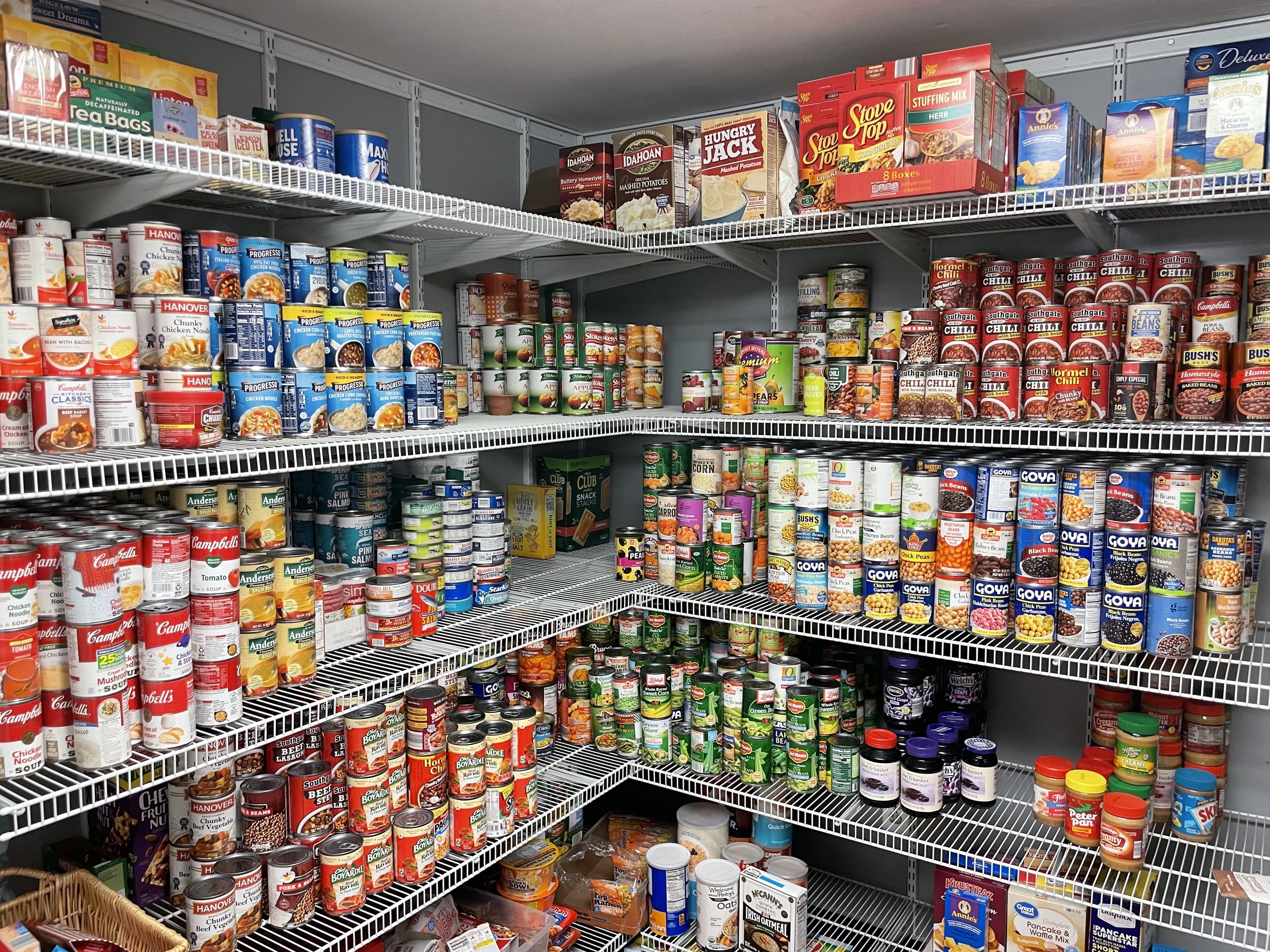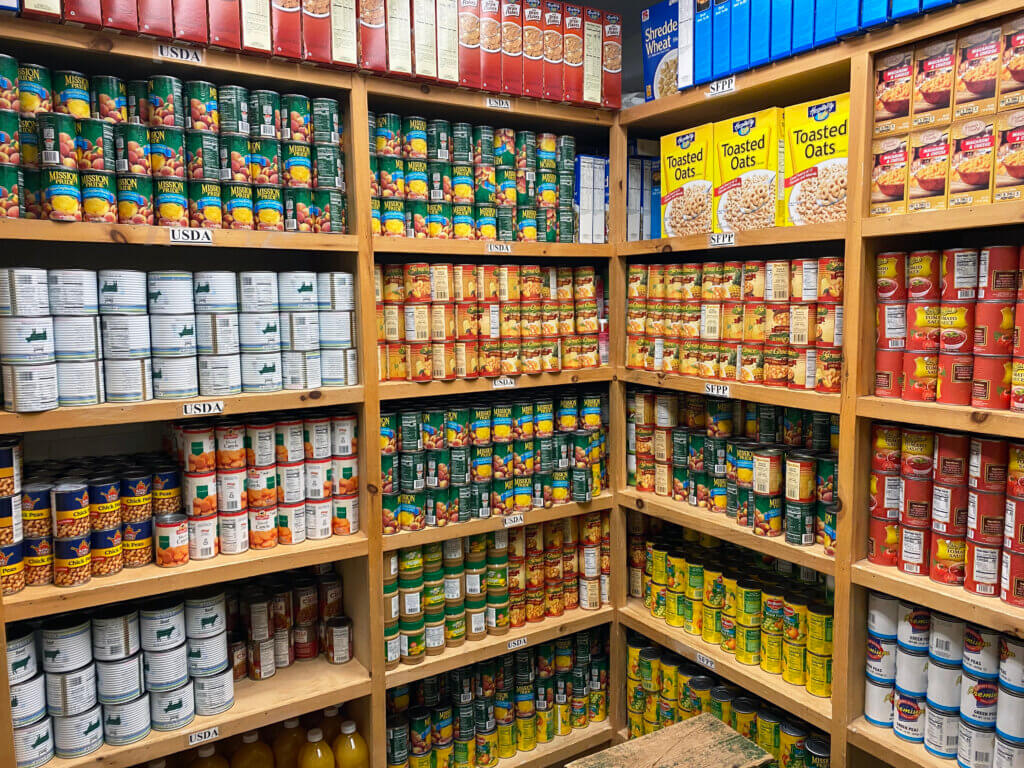Why Sustaining Your Regional Food Pantry Is Crucial for Assisting Those in Requirement
The importance of supporting regional food kitchens can not be overemphasized, particularly in the context of food insecurity, which impacts a disconcerting variety of people and family members within our communities. These important resources not only supply prompt alleviation from cravings yet also add to broader societal advantages, consisting of boosted wellness and educational results. As we explore the diverse duty of food kitchens, it comes to be evident that their effect extends far past merely dispersing food (Food Pantry Lockhart). Understanding this deeper link may trigger a reconsideration of just how we involve with and support these critical organizations.
Comprehending Food Instability
Food insecurity impacts about 10.5% of families in the United States, highlighting a substantial public health concern that transcends mere appetite. It refers to the absence of regular accessibility to adequate food for an energetic, healthy life. This condition can cause a series of adverse results, consisting of inadequate wellness, enhanced medical care costs, and diminished academic performance amongst children.
The root causes of food insecurity are multifaceted, typically coming from financial elements such as destitution, unemployment, and underemployment. Geographical area can also play a crucial role, with food deserts-- areas with limited accessibility to nutritious and cost effective food-- aggravating the problem - Food Pantry Lockhart. Furthermore, systemic aspects, including racial and social inequities, contribute to the disproportionate influence of food instability on marginalized areas
Addressing food insecurity is not just about boosting food supply; it calls for a detailed approach that incorporates financial stability, education and learning, and neighborhood support. Food insecurity not only impacts individual well-being but also has wider ramifications for social health and wellness and productivity. Understanding its complexity is vital for creating effective interventions and promoting long-lasting options that ensure all individuals have reliable accessibility to nourishing food.
The Function of Food Pantries
Local food pantries serve as vital lifelines for households and individuals dealing with food insecurity. They give crucial food items to those that may battle to afford sufficient nourishment as a result of financial difficulty, unemployment, or unforeseen circumstances. By dispersing food at no expense, these organizations assist alleviate appetite and stop the adverse health influences related to poor diets.
Food pantries usually companion with neighborhood farms, grocery store shops, and community organizations to resource a variety of nourishing food things, including fresh produce, milk, and healthy proteins. This collaboration makes certain that kitchen clients get not just nutrition yet additionally healthier options that add to overall health.
Moreover, food pantries function as area centers, fostering links amongst citizens and offering a sense of dignity to those in requirement. Numerous cupboards use extra resources, such as nourishment education and recommendations to social solutions, assisting clients browse their obstacles a lot more successfully.
Fundamentally, food kitchens play a complex function in combating food instability. They not only address prompt appetite but additionally equip people and households to improve their situations, consequently advertising community durability and cohesion.

Advantages of Supporting Food Pantries

Sustaining food pantries not just nourishes those in requirement but likewise enhances the material of the community. By supplying important food sources, food kitchens reduce appetite and lower food instability, which is crucial for the wellness and health of family members and individuals. Accessibility to nutritious food contributes to boosted physical wellness, much better instructional outcomes for kids, and enhanced psychological health, consequently promoting an extra effective and involved area.
Moreover, sustaining food pantries promotes social cohesion. These companies offer as centers for area interaction, bringing together volunteers, donors, and recipients in a common objective to fight hunger. This cooperation can damage down obstacles, foster understanding, and construct relationships amongst varied area members.
Furthermore, donations to food kitchens, whether in the kind of food, funds, or time, stimulate the neighborhood economic situation. Several food pantries prioritize sourcing from neighborhood manufacturers, thus supporting regional agriculture and businesses. This produces a cycle of support that benefits not only those in requirement but the area as a whole.
Just How to Get Entailed
Interaction with food kitchens can take lots of types, permitting teams and individuals to make a meaningful impact in their neighborhoods. Monetary donations are likewise important, as they enable food cupboards to acquire fresh produce and crucial materials.
Offering your time is an additional impactful way to sustain regional food cupboards. Many organizations rely upon volunteers for sorting, packing, and dispersing food. This hands-on participation not just assists the pantry yet also promotes a feeling of area. In enhancement, consider arranging food drives within your institution, neighborhood, or office team to raise awareness and gather resources.
Collaborations with local organizations can additionally boost support for food pantries. Organizations can hold donation events or contribute a portion of their sales to the pantry. Spreading out the word via personal networks and social media helps to raise presence and encourage others to add. By taking browse around these guys these teams, actions and individuals can dramatically bolster the initiatives of local food pantries and help those in requirement.
Area Impact and Link
Recognizing the profound impact of food pantries on area well-being is vital for cultivating a spirit of link and collaboration. Food kitchens serve not just as crucial resources for those dealing with food insecurity however additionally as centers for area involvement. They bring with each other diverse teams-- clients, volunteers, and contributors-- creating a setting where individuals can link and sustain one another.
The influence of food kitchens expands past plain arrangement of food; they serve as a catalyst for social cohesion. By joining pantry campaigns, area participants can develop connections that transcend socioeconomic obstacles. This network of assistance helps to take down the preconception typically related to food aid, cultivating an environment of approval and understanding.
As individuals unify in their efforts to sustain neighborhood food kitchens, they cultivate a sense of shared purpose and responsibility, enhancing the concept that everyone has a duty to play in making sure that no one goes hungry. Ultimately, supporting food pantries reinforces the material of the you can find out more area as a whole.
Final Thought
Supporting local food kitchens is important in combating food insecurity and improving the well-being of vulnerable populations. Engagement with food pantries fosters community links, promoting social cohesion and equity.
